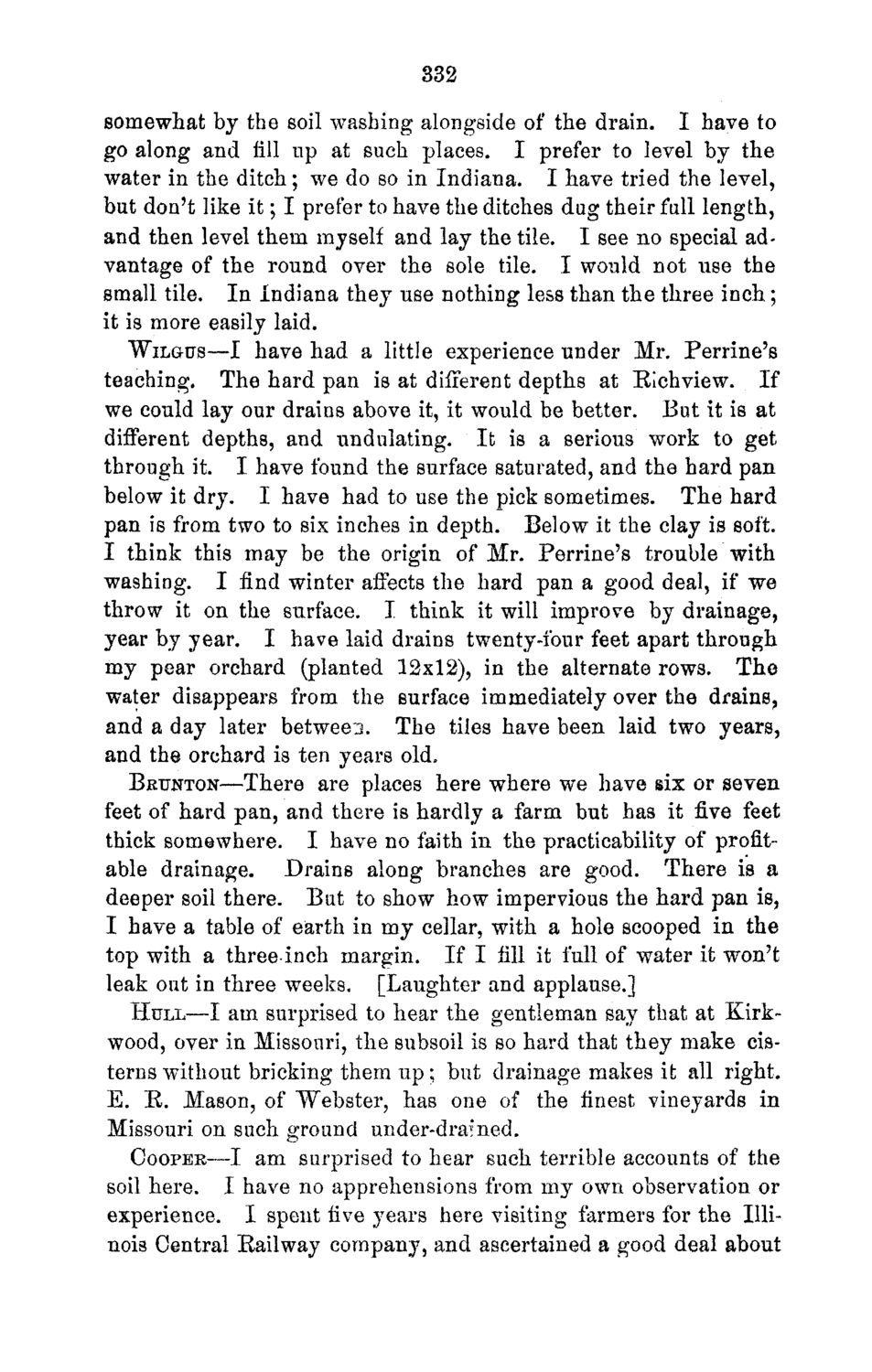| |
| |
Caption: Board of Trustees Minutes - 1870
This is a reduced-resolution page image for fast online browsing.

EXTRACTED TEXT FROM PAGE:
332 somewhat by the soil washing alongside of the drain. I have to go along and fill up at such places. I prefer to level by the water in the ditch; we do so in Indiana. I have tried the level, but don't like i t ; I prefer to have the ditches dag their full length, and then level them myself and lay the tile. I see no special advantage of the round over the sole tile. I would not use the small tile. In Indiana they use nothing less than the three inch; it is more easily laid. WILGUS—I have had a little experience under Mr. Perrine's teaching. The hard pan is at different depths at Richview. If we could lay our drains above it, it would be better. But it is at different depths, and undulating. It is a serious work to get through it. I have found the surface saturated, and the hard pan below it dry. I have had to use the pick sometimes. The hard pan is from two to six inches in depth. Below it the clay is soft. I think this may be the origin of Mr. Perrine's trouble with washing. I find winter affects the hard pan a good deal, if we throw it on the surface. I think it will improve by drainage, year by year. I have laid drains twenty-four feet apart through my pear orchard (planted 12x12), in the alternate rows. The water disappears from the surface immediately over the drains, and a day later between. The tiles have been laid two years, and the orchard is ten years old. BRTJNTON—There are places here where we have six or seven feet of hard pan, and there is hardly a farm but has it five feet thick somewhere. I have no faith in the practicability of profitable drainage. Drains along branches are good. There is a deeper soil there. But to show how impervious the hard pan is, I have a table of earth in my cellar, with a hole scooped in the top with a three inch margin. If I fill it full of water it won't leak out in three weeks. [Laughter and applause.] H U L L — I am surprised to hear the gentleman say that at Kirkwood, over in Missouri, the subsoil is so hard that they make cisterns without bricking them u p ; but drainage makes it all right. E. R. Mason, of Webster, has one of the finest vineyards in Missouri on such ground under-drained. COOPER—I am surprised to hear such terrible accounts of the soil here. I have no apprehensions from my own observation or experience. I spent five years here visiting farmers for the Illinois Central Railway company, and ascertained a good deal about
| |